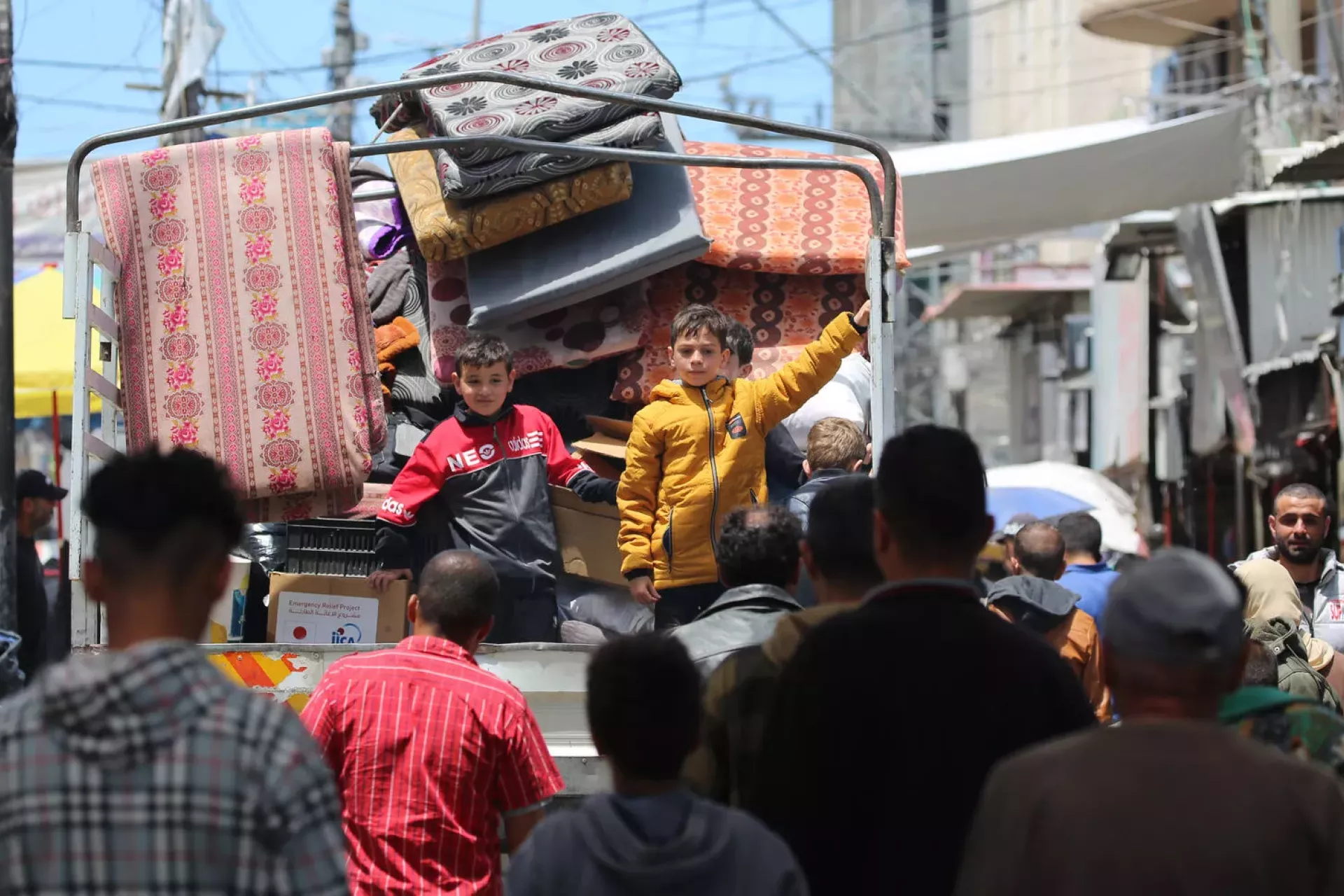Aid agencies say the Israeli “pause” has not created improvement for shipments of humanitarian aid
A UN official recently described the Israeli onslaught in Gaza as a “war on children” as Palestinian youth go without food, education, and many other foundational needs.
The spokesman for the UN aid agency for children (UNICEF), James Elder said in an interview with Democracy Now that the Israeli military operations in Gaza amount to a “war on children.” He said he was recently in Gaza and attempted to deliver aid to children, but their truck was turned back at an Israeli checkpoint.
He also said he witnessed an Israeli war crime during his time inside Gaza. Elder explained that Palestinians were fishing from the Gazan coastline for hours before Israeli forces unexpectedly opened fire. He reported seeing two men lying wounded on the beach and the Israeli forces refused international aid workers the ability to provide medical care. Elder examined the bodies and saw the men were shot in their neck and back.
The situation for the Palestinian children is becoming more challenging in the heat of the Gazan summer. Elder said that dehydration is a growing issue, and the sweltering conditions add to the psychological toll on children. “The physical and psychological exhaustion they face is almost impossible to capture,” the UNICEF spokesman explained.
Israeli Prime Minister Benjamin Netanyahu claims the Strip is receiving an ample amount of food and other assistance. However, aid agencies say that the aid crossing into Gaza is just a small fraction of what is needed.
Additionally, the chaos on the ground in Gaza makes it difficult to move aid throughout the Strip, even if it makes it inside the border. The Israeli Defense Forces said they opened an aid route in the southern half of the Strip where shipments are piling up. The groups responsible for distributing the aid say the Israeli military operations in Rafah have made the situation too dangerous to operate.
The lack of food and fighting has led to the starvation of at least five children so far in June. Human rights groups and the UN predict that one million Gazans are near or already in a state of famine.
“Regardless of whether or not the famine (IPC phase 5) thresholds have been definitively reached or exceeded, people are dying of hunger-related causes across Gaza,” the US-based Famine Early Warning Systems Network (Fews Net) reported. “Acute malnutrition among children is extremely high and this will result in irreversible physiological impacts.
Beyond food, Gaza’s children are in desperate need of clean water. The UN’s human rights office assesses that two-thirds of Gaza’s water and sanitation systems have been destroyed.
“It is no secret that the biggest cause of intestinal infections currently occurring in the Gaza Strip is the contamination of the water supplied to these children,” says Dr Ahmed al-Fari, head of the children’s departments at Nasser Hospital. “The first problem is intestinal infections with vomiting and diarrhea which causes dehydration. The second problem is hepatitis C or A, which are no less dangerous than intestinal infections, if not more so.”
The children in Gaza have gone without education and a severe lack of medical care over the past eight months. 69% of Gaza’s schools have been damaged or destroyed, and its hospitals have seen their beds for patients shrink by 70%.

































